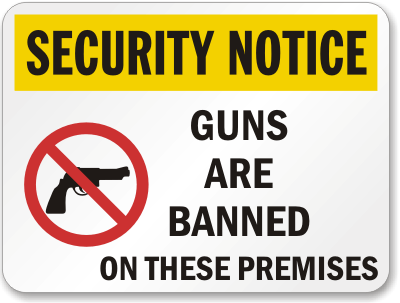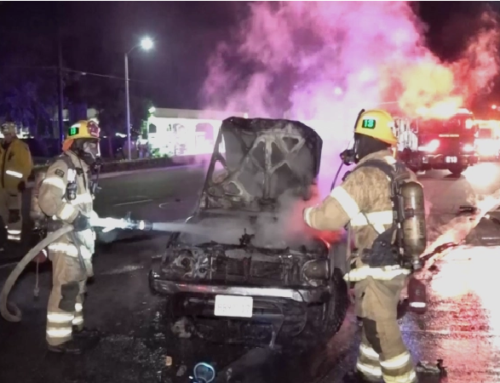1. Firearm Violations In Motor Vehicles:
This is probably the number one reason why otherwise law-abiding California gun owners are arrested. First, you must make certain all firearms carried in motor vehicles are unloaded; this means you should personally make certain that the firing chamber, cylinder, fixed magazine or any detachable magazine attached to the firearm is empty (detachable magazines not attached to the firearm, but containing ammunition mayresult in unlawful arrest, criminal prosecution for lawful activity or the filing of more serious criminal charges). Second, there is an additional requirement for handguns and registered assault weapons carried in motor vehicles. Handguns and registered assault weapons carried in motor vehicles must be unloaded and must be carried either in the trunk or in a secure, fully-enclosed, locked container, other than the utility or glove compartment. Rifles and shotguns should be cased, preferably in locked containers (to avoid unlawful arrest and criminal prosecution for lawful activity, this writer recommends the use of compliant locked containers for all firearms being transported in motor vehicles). The Penal Code lists numerous exceptions to these requirements but do not rely upon them unless you are certain that they apply to your situation.
2. Shooting In Suburban Or Other Closed Areas:
It should be obvious that you should not shoot in the backyard of your suburban tract home, but some individuals ignore the law and do it anyway. Why? They shoot crows sitting on a telephone pole or shoot in the air to celebrate New Year’s Eve. Don’t do this! You may be convicted of violating Penal Code § 246.3, which can be charged as either a felony (lifetime ban on firearms possession) or misdemeanor (ten year ban on firearms possession). Shooting in a rural area closed to the use of firearms, may result in a misdemeanor charge of violation of a city or county ordinance, or Penal Code §§ 246.3 or 25850 (possessing a loaded firearm in an area closed to shooting). Do not assume a rural area is open to shooting because it is remote, you have always shot there, a friend told you it was open, or it is littered with empty shell casing and targets, etc. You must check a map and the county ordinances or federal regulations (i.e. forestry or Bureau of Land Management) to be certain.
3. Airport Violations:
Of the ten mistakes listed in this article, this should be the most obvious, but it occurs on a somewhat regular basis. While Federal law allows air travelers to transport firearms, the firearms must be unloaded, transported in checked baggage and declared to the airline. California law prohibits firearms, frames & receivers, barrels, magazines, ammunition and many other items in the “sterile” (i.e. arrival & departure) area of the airport. So how does a violation happen? Often, the gun owner was storing a small firearm in a piece of carry-on luggage in their closet. As detection is virtually inevitable, the gun owner obviously did not do this intentionally but rather forgot about the presence of the firearm. This can be a costly mistake in two ways. First, you can be criminally prosecuted. Second, you will be subject to a civil penalty of up to $10,000.
4. Private Party Gun Sales Not Processed By A Dealer:
With very limited exceptions, private party gun sales in California must be processed through a licensed dealer. Violators are often apprehended at gun shows when they sell a gun to an undercover officer. If the subject firearm was a handgun, this can be charged as a felony.
5. Machine Guns:
Without a permit from the California Department of Justice and federal registration, possession of a machine gun is illegal in California. California Regulations provide such permits are only to be issued to dealers or manufacturers for the law enforcement and military markets, or for use in motion picture or television production. Yet every year a few gun owners who gave in to temptation, are arrested for possession of an illegal machine gun. Don’t be one of them! If apprehended, you will likely be convicted of a felony and sent to prison.
6. Unregistered Assault Weapons:
Simple possession of an unregistered assault weapon may be charged either as a misdemeanor or as a felony (punishable by up to three years in state prison). Manufacture, sale, possession for sale, importation, transportation, etc. is a felony punishable by up to eight years in state prison. Most assault weapon cases are currently prosecuted as felonies.
7. Illegal Weapons Or Accessories:
Many non-firearm items sold at some gun shows, currently offered for sale by mail order on the internet, or in gun magazines, are illegal in California. As mere possession, even in the privacy of your home, can be prosecuted as a felony, it is imperative that the California gun owner knows the law in this area. Some of these prohibited items include camouflaging firearms containers, flechette darts or flechette ammunition, explosive bullets, ballistic knives, multi-burst trigger activators, nunchakus, metal knuckles, belt buckle knives, leaded canes, throwing stars, lipstick case knives, cane swords, shobi-zue, air gauge knives, writing pen knives, and items or weapons commonly known as blackjacks or billy clubs. Short-barreled shotguns, short barreled rifles, cane guns, wallet guns, zip guns, undetectable firearms and firearms not immediately recognizable as a firearm, are also illegal in California. Tracer ammunition (except for use in shotguns) and grenade launchers are unlawful and are considered destructive devices in California.
8. Carrying A Concealed Handgun On Your Person Without A Permit:
Current California Law concerning the issuance of concealed weapons permits is in drastic need of revision, as it is unfairly applied in many jurisdictions. Many Californians are unfairly denied permits. However, if you carry a concealed handgun without a permit, you can expect to be arrested and criminally prosecuted. You may even be charged with a felony if you have a prior criminal record or you were not in lawful possession of the handgun. Again, for more detailed information, read my article, Transportation of Firearms in Motor Vehicles – The Most Common Legal Trap for California Gun Owners.
9. Questioned Self-Defense Use Of Firearms:
This is a very involved subject, far beyond the scope of this article. However, the basic advice is, don’t use a firearm for self-defense unless you have a reasonable belief it is necessary to prevent death or great bodily harm. If you use a firearm in a situation where it was not justified, you can be criminally prosecuted, potentially for a felony offense. Remember, months later, a jury may second-guess you and not see the urgency that was apparent to you at the time. There is a fine line between hesitating, thus becoming a victim, and over-reacting, thus being subject to criminal prosecution.
10. Firearms On Or Near School Grounds:
Subject to a few limited exceptions, it is unlawful to possess a firearm on public or private school grounds, including colleges and universities. With certain exceptions (for example, within a residence or business, transporting unloaded in a secure, fully-enclosed locked container) it is also unlawful to possess a firearm within 1,000 feet of a public or private school providing instruction in kindergarten or grades 1 to 12. Most of these violations are felonies. Although this law is intended to reduce gang violence, it occasionally ensnares an otherwise law-abiding gun owner. For example, an adult student standing at his vehicle in a college parking lot is observed displaying a newly purchased firearm to an adult classmate. The firearm is not loaded and neither student possesses any ammunition. Despite the lack of any evidence that the firearm will be misused, this is still considered a criminal offense and is punishable as a felony.
Disclaimer: This article is general information; it is not legal advice. The information contained within, is subject to change as a result of future court decisions and/or new legislation.






